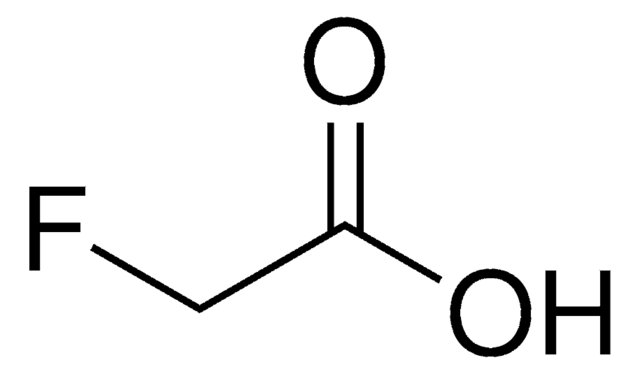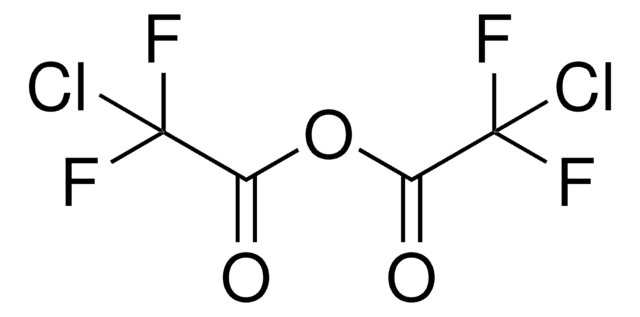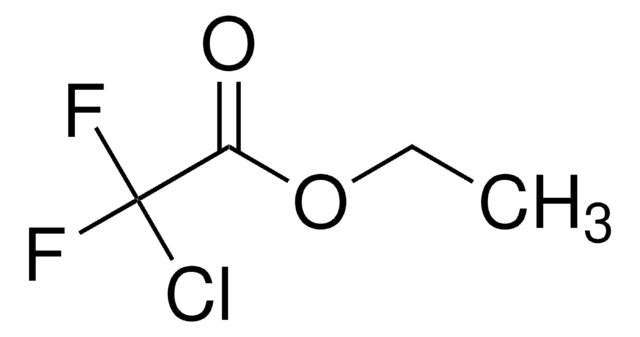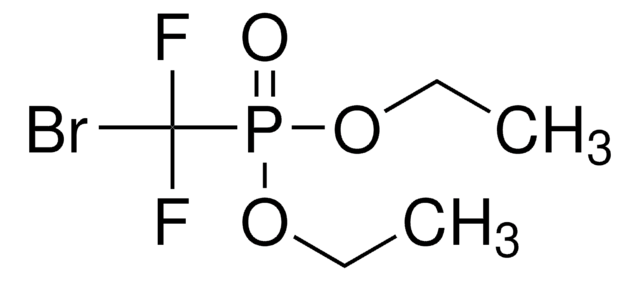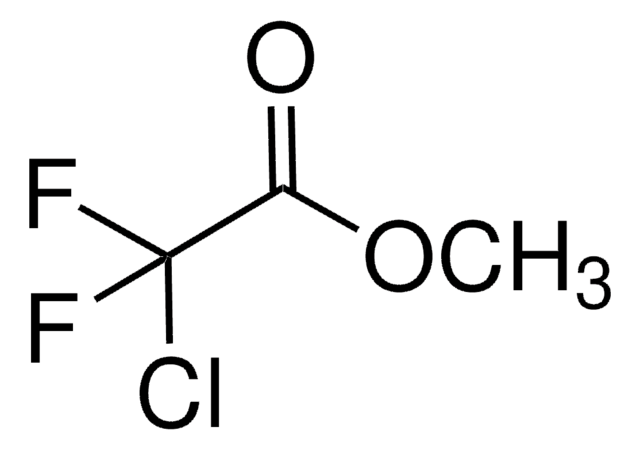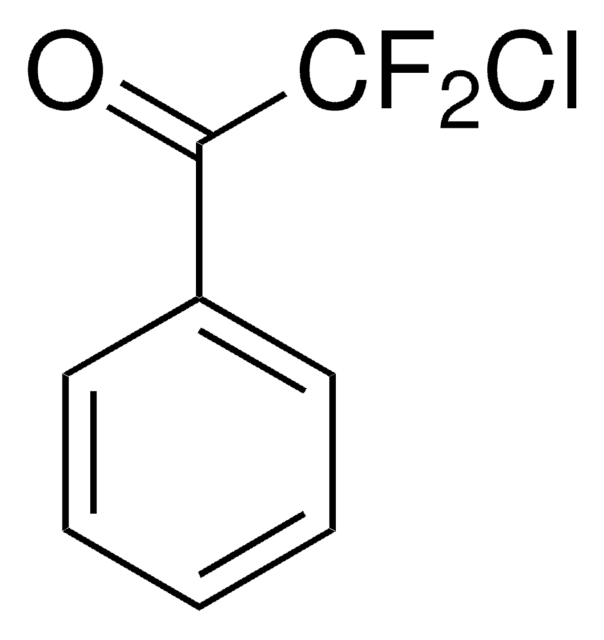C34200
Chlorodifluoroacetic acid
98%
About This Item
Productos recomendados
Quality Level
assay
98%
form
liquid
refractive index
n20/D 1.355 (lit.)
bp
122 °C (lit.)
mp
20-23 °C (lit.)
density
1.54 g/mL at 25 °C (lit.)
SMILES string
OC(=O)C(F)(F)Cl
InChI
1S/C2HClF2O2/c3-2(4,5)1(6)7/h(H,6,7)
InChI key
OAWAZQITIZDJRB-UHFFFAOYSA-N
¿Está buscando productos similares? Visita Guía de comparación de productos
signalword
Danger
hcodes
Hazard Classifications
Skin Corr. 1A
Storage Class
8A - Combustible corrosive hazardous materials
wgk_germany
WGK 3
flash_point_f
Not applicable
flash_point_c
Not applicable
ppe
Faceshields, Gloves, Goggles, type ABEK (EN14387) respirator filter
Elija entre una de las versiones más recientes:
¿Ya tiene este producto?
Encuentre la documentación para los productos que ha comprado recientemente en la Biblioteca de documentos.
Los clientes también vieron
Nuestro equipo de científicos tiene experiencia en todas las áreas de investigación: Ciencias de la vida, Ciencia de los materiales, Síntesis química, Cromatografía, Analítica y muchas otras.
Póngase en contacto con el Servicio técnico

